
Live Folders comes as the company also builds out more AI-powered features to create more dynamic and automated user experiences.
The company is launching Live Folders initially with GitHub pull request support.
When a user creates a GitHub pull request, Arc automatically creates a Live Folder in the sidebar.
When it asked users about support for types of systems for the Live Folders feature, GitHub was the top requested service.
It added that the tech behind Live Folders is flexible, so it could also adopt things like updates from RSS feeds.
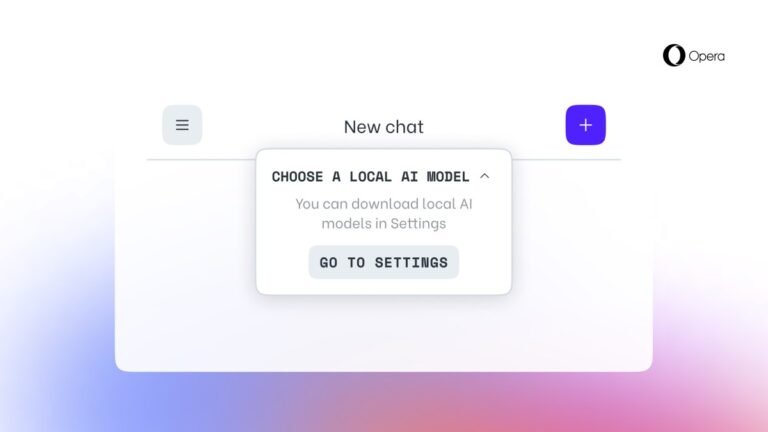
Web browser company Opera announced today it will now allow users to download and use Large Language Models (LLMs) locally on their computer.
This feature is first rolling out to Opera One users who get developer stream updates and will allow users to select from over 150 models from more than 50 families.
The feature will be available to users as part of Opera’s AI Feature Drops Program to let users have early access to some of the AI features.
Notably, Opera is not doing any work to save storage while downloading a model.
“Opera has now for the first time ever provided access to a large selection of 3rd party local LLMs directly in the browser.
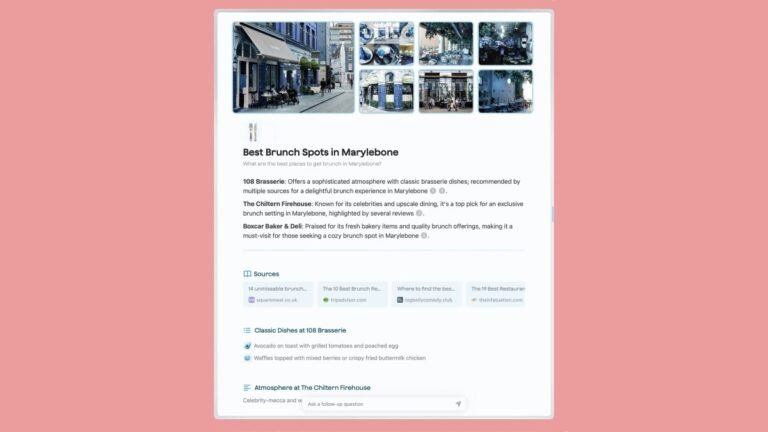
Some of these features sound and work like rival browser Arc’s recent releases.
But SigmaOS claims that its feature returns better-quality results, which is a hard metric to quantify.
Going all out on AILast year, SigmaOS released some AI-powered features such as a contextual assistant called Airis, which can answer your questions about a web page or the broader web.
Now, the company is looking to monetize its AI features.
It said that all users would get access to AI-powered features but for $20 per month users would get better rate limits for AI features.
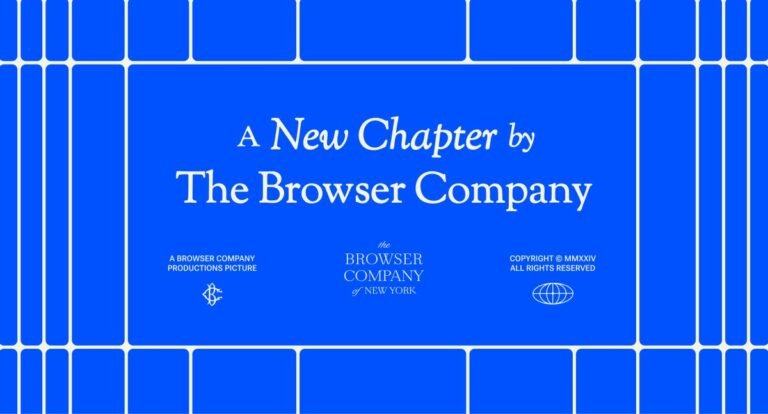
The Browser Company, which makes the Arc browser, has raised $50 million in a round led by Pace Capital at a $550 million valuation, TechCrunch has learned exclusively.
However, in January, the company released the Arc Search app on iOS, focusing on putting AI-powered search at its center.
This is ingrained in the DNA of The Browser Company.
Paul Frazee, who built a decentralized browser called Beaker, said that scaling a browser product is hard as people are set in their way and making them switch is tough.
The Browser Company has a big ambition to build an “internet computer” for users.
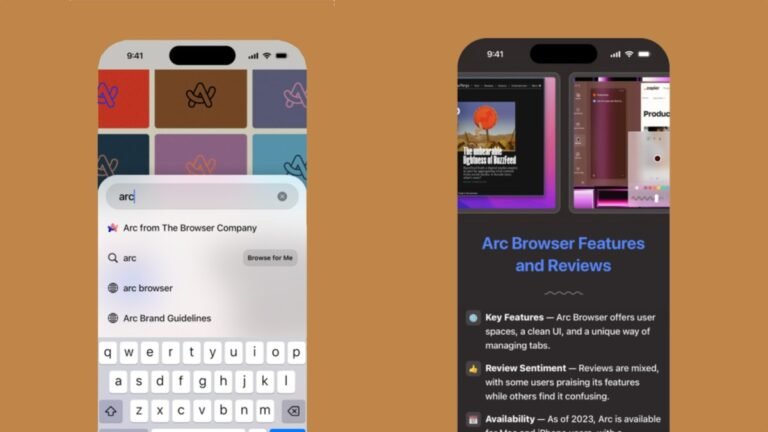
The Browser company’s Arc, a browser focused on a less cluttered web experience, launched a new feature in its mobile app Arc Search that uses AI to summarize web pages.
However, in our testing, the AI summaries themselves often miss the mark.
Other users have also pointed out that the summary feature doesn’t work well with other languages.
That said, there is also a problem with AI-powered summary features in other places as well.
Additionally, Arc updated its “Browse for me” AI-powered search to make the pages generated as search results sharable.
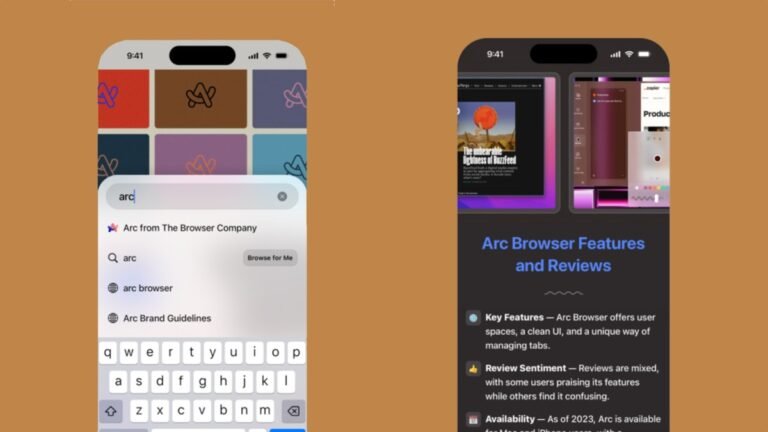
The Browser Company launched the Arc’s first iPhone companion app last year, allowing users to save links for consumption on the desktop application later.
The firm has now released a new mobile app, called Arc Search, that aims to focus on the search experience.
type a search query and tap “browse for me” – we'll then go read 6 webpages on your behalf… …and create THE PERFECT TAB to answer your query.
Notably, last week, the Browser Company announced that users can set Preplexity as their default search engine on the Arc’s desktop client.
Arc Search browser also archives tabs after 1 day (this is customizable) to save you from tab overload.

Opera revealed today that it will launch a new AI-powered browser built on its own engine for iOS in Europe.
The changes will allow developers to offer browsers that are not based on the WebKit browser engine.
Opera says the changes will allow it to provide iPhone users with an AI-powered alternative to Safari.
Last year, Opera introduced its “Aria” browser AI and redesigned its flagship desktop browser and called it Opera One, which will also be the name of the new iOS browser.
At the time, Opera said the new browser has elements that will make it ready for a “generative AI-based future.”

Google announced Tuesday at CES 2024 a new feature for EV drivers that will track and display real-time battery information in Google Maps.
The new Android Auto feature will rollout today on Ford Mustang Mach-E and F-150 Lightning.
Google built-in adds Chrome, Weather ChannelGoogle also added new trip planning capabilities, the Chrome browser and the Weather Channel app to Google built-in.
The company said that starting today drivers of vehicles with Google built-in can send the trip they’ve planned on their smartphone using Google Maps directly to their car.
Cars with Google built-in will also get, starting today, PBS KIDS and Crunchyroll and the Weather Channel app.

For the longest time, Mozilla was synonymous with the Firefox browser, but for the last few years, Mozilla has started to look beyond Firefox, especially as its browser’s importance continues to wane.
Late last month, I sat down with Mozilla’s president and executive director, Mark Surman, to discuss what’s next for Mozilla — and what that means for the fans and Firefox.
“Mozilla AI, which had a broad mandate around finding open source, trustworthy AI opportunities and build a business around them.
Meanwhile, the open source and AI communities are still figuring out what exactly open source AI is going to look like.
“The question that we’re asking ourselves now is: What’s the pop-up blocker for the AI era?
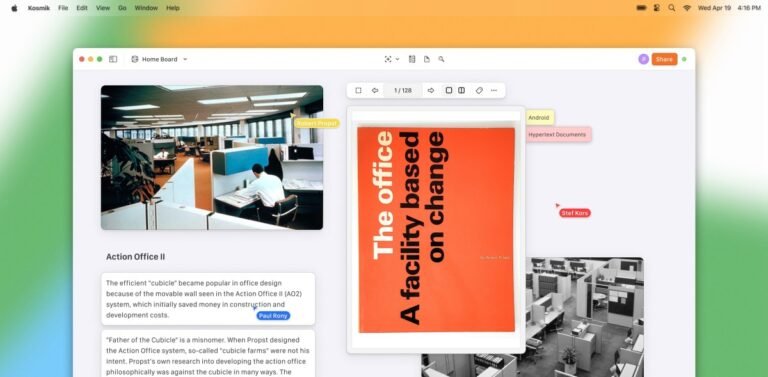
Kosmik was founded in 2018 by Paul Rony and Christophe Van Deputte.
And that’s when he started to build Kosmic, Rony told TechCrunch, drawing on a prior background in computing history and philosophy.
It also features a built-in browser, saving users from having to switch windows when they need to find a relevant website link.
Additionally, the platform also sports a PDF reader, which lets the user extract elements such as images and text.
“I think that everything revolves around the idea that we do not have the best web browser, text editor or PDF reader,” Rony said.













